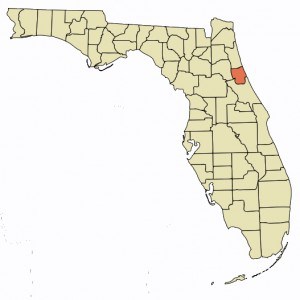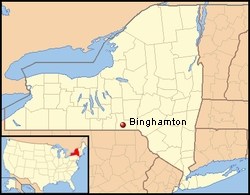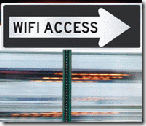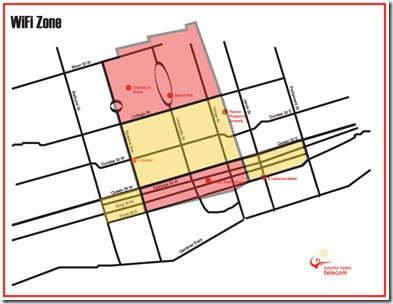 In 2007, we took our first major trip away from western New York in 20 years and spent two weeks an hour away from Calgary, Alberta.
In 2007, we took our first major trip away from western New York in 20 years and spent two weeks an hour away from Calgary, Alberta.
After two weeks in Kananaskis Country, Banff, Calgary, and other spots all over southern Alberta, we came away with the Good, the Bad, and the Ugly:
The Good
- Alberta is like Texas, only without the anger: Friendly people everywhere
- Amazing Canadian Rockies contrasting with vast flat prairies and never-ending views of canola, buckwheat, and other crops
- The only place that could convince me to purchase and wear a cowboy hat (they are functional after all)
The Bad
- A Dodge Charger is considered a “small” rental car on Alberta’s vast paved (and frequently unpaved) roadways
- Calgary’s love of photo radar and red light cameras, which must sustain the city’s revenue base
- You’re in “pop” country, and you’d better like Pepsi because Coca-Cola is hard to find. A “can of pop” on a menu means exactly that. Ask for ice.
- There are no bumper stickers in Alberta — there are “deckles.” I contemplated phoning the CBC to find out what a deckle was until I realized they meant “decal.”
The Ugly
- Internet access in hotels we stayed at was either non-existent, slow, or erratic.
Now before you say vacations should mean a break from the Internet, know that for those of us who spend a lot of free time taking care of websites like this, that is the equivalent of asking someone to take a vacation from electricity. I don’t do camping.
It turns out my experience is becoming less common, as hotels realize sharing a DSL line among 50+ guests on a Linksys wireless router stuck on a shelf in the lobby is just not going to cut it. Instead, hotels and motels not only in Canada but across the United States have beefed up their broadband… and discovered they could make a killing by overcharging guests to access it.
Now consumers in growing numbers are deciding the “daily fee” for broadband common on hotel bills, often ranging from $10-15 a day, is a dealbreaker. They are taking their business elsewhere, even if it means foregoing a luxury hotel to stay in a middle-of-the-road chain with the screaming kids in the pool downstairs, as long as the Internet is free.
USA Today reports that for some consumers, charging any fee for Internet access at a hotel is unacceptable.
Frequent business traveler Randall Blinn refuses to stay at hotels that charge for Internet access.
“It really irritates me that the more expensive hotels charge for Internet access when the inexpensive hotels provide it for free,” says Blinn, a computer consultant in Louisville.
Blinn is one of many travelers disturbed by hotels that charge a daily fee for Internet access. He says he books less-expensive hotels with free Internet access, even if his company will pay for a more expensive hotel that charges for online access.
Some 40 percent of hotel chains in the United States have a daily fee for Internet access. For the hotels that charge, it’s just another source of revenue, just like charging for in-room telephone calls that consumers learned to avoid by using their cell phones.
For Blinn, who has spent about 50 nights in hotels this year, any charge is unacceptable. If he must stay at a hotel that charges, he says, he leaves the hotel for a fast-food restaurant or a coffee shop that provides free Internet access.
A few weeks ago, Blinn says, he spent a lot of time in the concierge lounge of the Marriott hotel in Salt Lake City, because the hotel was charging for Internet access in rooms but not in the lounge.
Some consumers have found methods to avoid the daily fee, ranging from arguments with hotel personnel demanding that daily fees be waived (one went as far as to turn in all of the personal care items left in his room, which he argued cost more than Internet access did anyway), to strategically choosing to stay adjacent to lobbies or other public areas where free Wi-Fi was available, hoping to jump on the wireless signal from their rooms. Others bring wireless data plans from their cell phone provider, and use those networks for wireless access, bypassing the hotel altogether.
Some hotels automatically waive fees for their most frequent guests, typically enrolled in premium guest club memberships. But for people like Blinn, having to pay for Internet access for 10-14 days of hotel stays isn’t worth it to “earn” free Internet. He simply avoids any hotel that charges for access, and let’s them know why.
Jeff Weinstein, editor in chief of Hotels magazine, a trade publication, suggests that kind of complaining will probably put an end to the “daily Internet access fee.”
“I think the message from consumers about this is getting louder, and you will continue to see more (hotel) brands move toward free access over the next year or two,” he told the newspaper.
Below the jump, learn which hotel chains charge guests for Internet access, and which do not.
… Continue Reading
 When Verizon FiOS is moving in on your turf, one way to preserve customers is to hand out free Wi-Fi service for your customers on-the-go. Cablevision’s Optimum Wi-Fi service aims to do just that, with thousands of Wi-Fi hotspots installed across metropolitan New York, Connecticut and New Jersey. Many hotspots can be found at shopping centers, on main streets and train platforms, in parks, marinas, and at sports fields. The company claims Optimum WiFi, running for a year now, is already available at nearly 96% of commuter rail platforms and station parking lots serving Long Island and Westchester County.
When Verizon FiOS is moving in on your turf, one way to preserve customers is to hand out free Wi-Fi service for your customers on-the-go. Cablevision’s Optimum Wi-Fi service aims to do just that, with thousands of Wi-Fi hotspots installed across metropolitan New York, Connecticut and New Jersey. Many hotspots can be found at shopping centers, on main streets and train platforms, in parks, marinas, and at sports fields. The company claims Optimum WiFi, running for a year now, is already available at nearly 96% of commuter rail platforms and station parking lots serving Long Island and Westchester County.

 Subscribe
Subscribe





